Uncategorized
-
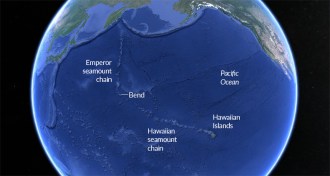 Earth
EarthPlate loss gave chain of Pacific islands and seamounts a bend
The sinking Izanagi tectonic plate may have rerouted the mantle flow beneath the Pacific, halting the Hawaiian hot spot.
-
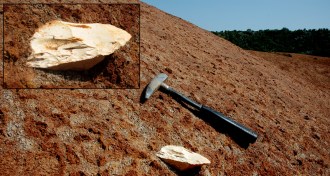 Anthropology
AnthropologyAncient hominids moved into Greece about 206,000 years ago
New analysis puts people at a contested Greek site about 206,000 years ago.
By Bruce Bower -
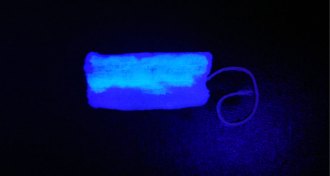 Environment
EnvironmentTampons: Not just for feminine hygiene
Tampons soaked in polluted water glow under UV light, revealing detergent-filled wastewater in rivers.
-
 Humans
HumansEgg-meet-sperm moments are equal opportunities for girls and boys
Despite previous claims, equal numbers of male and female embryos are conceived, new data suggest.
-
 Environment
EnvironmentFracking chemicals can alter mouse development
Hormone-disrupting chemicals used in fracking fluid cause developmental changes in mice, new experiments show.
By Beth Mole -
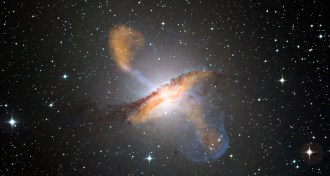 Astronomy
Astronomy‘Supernova sweeping’ cleans up a galaxy’s gas
Supernovas might sweep the remaining gas out of a galaxy after a supermassive black hole triggers the end of star formation.
-
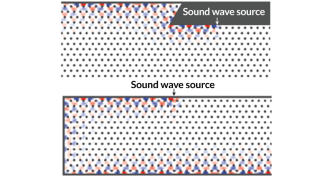 Materials Science
Materials ScienceA new spin on guiding sound waves along a one-way route
A proposed acoustic topological insulator made of an array of spinning metal rods would channel sound waves in one direction along its edge, preventing any sound from bouncing away.
By Andrew Grant -
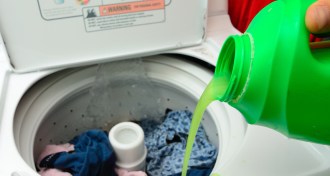 Materials Science
Materials ScienceSuds turn silver nanoparticles in clothes into duds
Bleach-containing detergents destroy antibacterial silver nanoparticles that coat clothes.
By Beth Mole -
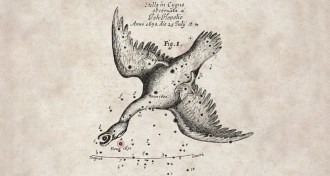 Astronomy
AstronomyEnigmatic 17th century nova wasn’t a nova at all
A nova observed in 1670 was actually two stars colliding, new evidence suggests.
-
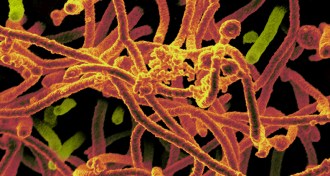 Genetics
GeneticsEbola virus not mutating as quickly as thought
The virus causing the current Ebola epidemic in West Africa is not evolving as quickly as some scientists had suggested.
-
 Psychology
PsychologyLong-term study complicates understanding of child abuse
Sexual abuse and neglect get reported more if parents were maltreated as kids, which may lead authorities to overestimate some children’s risk of abuse.
By Bruce Bower -
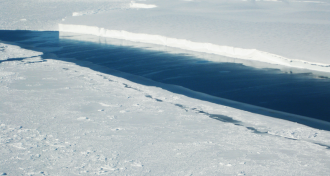 Climate
ClimateAntarctic ice shelves rapidly melting
Melting around Antarctica is accelerating, with several ice shelves projected to vanish entirely within 100 years.